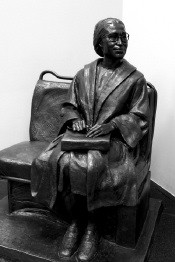 The Montgomery Bus Boycott of 1955 transformed into the Civil Rights Movement thanks to Rosa Parks, a 42-year-old, black seamstress. This genteel woman was on her way home from work and sat in the middle section of the bus. When told by the driver to give up her seat to a white passenger, Parks refused. "I don't think any segregation law angered black people in Montgomery more than bus segregation. It was humiliating," Park would later say about the injustice that kept her in the seat.
The Montgomery Bus Boycott of 1955 transformed into the Civil Rights Movement thanks to Rosa Parks, a 42-year-old, black seamstress. This genteel woman was on her way home from work and sat in the middle section of the bus. When told by the driver to give up her seat to a white passenger, Parks refused. "I don't think any segregation law angered black people in Montgomery more than bus segregation. It was humiliating," Park would later say about the injustice that kept her in the seat.
Today, the chilling stillness caused by that injustice can be felt in the Rosa Park Museum as visitors are introduced to Parks and the movement during the introductory film shown at the entrance.
"Everybody knows it. If you are colored, you don't take a drink from a white water fountain. Can't eat in a white restaurant...know your place," says the film's narrator as photo after photo is projected above.
In others rooms, visitors will see a replica of the bus; read the pamphlets that encouraged Montgomery residents to boycott the buses and see cutting-edge exhibits. The voices of people involved in the Civil Rights Movement resonate throughout. Expect to stay longer than anticipated in this wonderful tribute to a courageous woman who set America straight.
The Children's Wing prepares visitors for the museum reenactment involving Rosa Parks.


 The
The
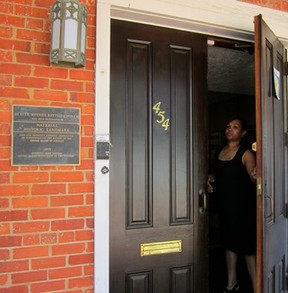
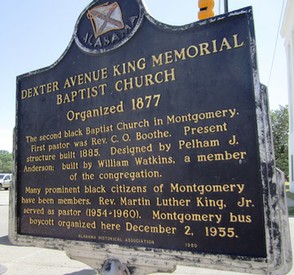



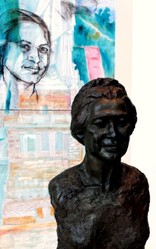

 Czech Film Trips Now an Appon 07/19/2015
Czech Film Trips Now an Appon 07/19/2015
 Dim Sum Dining at 88 Palaceon 01/24/2015
Dim Sum Dining at 88 Palaceon 01/24/2015
 Hank Williams Lives On in Montgomery, Alabamaon 08/18/2014
Hank Williams Lives On in Montgomery, Alabamaon 08/18/2014
 Little Italy in the Bronxon 02/02/2014
Little Italy in the Bronxon 02/02/2014
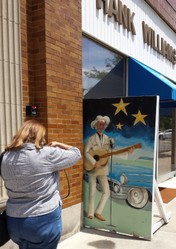

Comments
I agree. Montgomery has made an admirable effort to preserve the landmarks.
History has many such incidents, interesting to see that the landmarks and monuments are conserved for future generation's to ponder and retrospect.
Hi Digby, Thanks for the comment. Visiting Montgomery was a favorite trip of mine. I never really thought much about all that occurred during that period in history. What an education I had. I plan to do a few more Montgomery articles over the next few days.
This all is so interesting. I would love to visit these places.